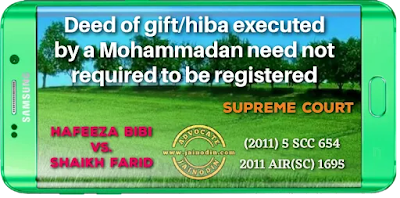In Nathi Lal vs State of UP reported in 1990 Supp SCC 145, the Apex Court has succinctly held that the case and counter case should be tried by the same judge one after the other and both the judgments must be pronounced by the same Judge one after the other. Observation of the Apex Court in this regard is as under:
"2. We think that the fair procedure to adopt in a matter like the present where there are cross cases, is to direct thatthe same learned Judge must try both the cross cases one after the other. After the recording of evidence in one case is completed, he must hear the arguments but he must reserve the judgment. Thereafter he must proceed to hear the cross case and after recording all the evidence he must hear the arguments but reserve the judgment in that case. The same learned Judge must thereafter dispose of the matters by two separate judgments. In deciding each of the cases, he can rely only on the evidence recorded in that particular case. The evidence recorded in the cross case cannot be looked into. Nor can the judge be influenced by whatever is argued in the cross case. Each case must be decided on the basis of the evidence which has been placed on record in that particular case without being influenced in any manner by the evidence or arguments urged in the cross case. But both the judgments must be pronounced by the same learned Judge one after the other" [Para No.9]
The same law was reiterated by the Apex Court in Sudhir and Ors. vs. State of MP reported in (2001) 2 SCC 688 in which the Apex Court held as under:
"8. It is a salutary practice, when two criminal cases relate to the same incident, they are tried and disposed of by the same court by pronouncing judgments on the same day. Such two different versions of the same incident resulting in two criminal cases are compendiously called "case and counter case" by some High Courts and "cross cases" by some other High Courts. Way back in nineteen hundred and twenties a Division Bench of Madras High Court (Waller, and Cornish, JJ) made a suggestion (In Re Goriparthi Krishtamma - 1929 Madras Weekly Notes 881) that "a case and counter case arising out of the same affair should always, if practicable,be tried by the same court, and each party would represent themselves as having been the innocent victims of the aggression of the other."[Para No.10]
In the said judgment the Apex Court further held as under:
"12. How to implement the said scheme in a situation where one of the two cases (relating to the same incident) is charge-sheeted or complained of, involves offences or offence exclusively triable by a Court of Sessions, but none of the offences involved in the other case is exclusively triable by the Sessions Court. The Magistrate before whom the former case reaches has no escape from committing the case to the Sessions Court as provided in Section 209 of the Code. Once the said case is committed to the Sessions Court, thereafter it is governed by the provisions subsumed in Chapter XVIII of the Code. Though, the next case cannot be committed in accordance with Section 209 of the Code, the Magistrate has, nevertheless, power to commit the case to the Court of Sessions, albeit none of the offences involved therein is exclusively triable by the Sessions Court. Section 323 is incorporated in the Code to meet similar cases also. That section reads thus:
"323.If, in any inquiry into an offence or a trial before a Magistrate, it appears to him at any stage of the proceedings before signing judgment that the case is one which ought to be tried by the Court of Session, he shall commit it to that Court under the provisions hereinbefore contained and thereupon the provisions of chapter XVIII shall apply to the commitment so made."


